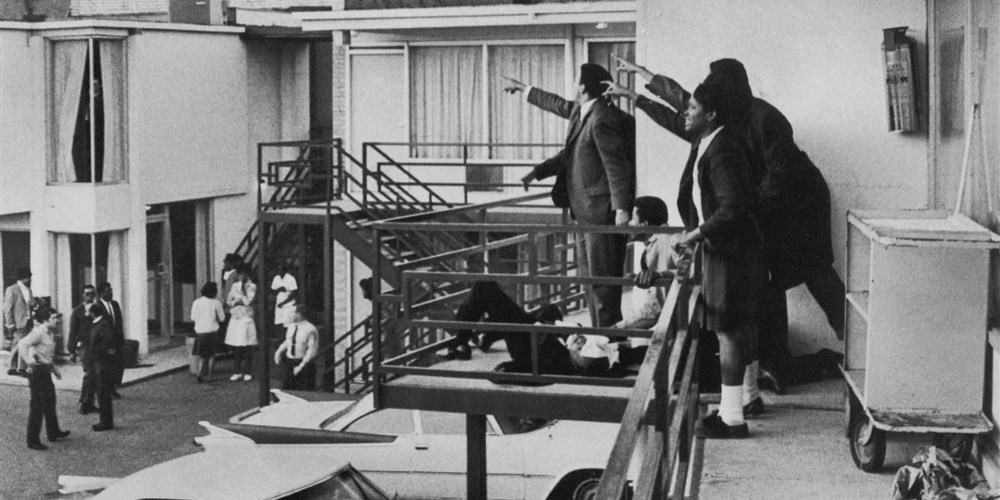“All of our stories aren’t ours to take with us”

Mary Ellen Ford is pictured second from left in the background center of the photo taken moments after MLK’s assassination.
By Patricia Pihl, Personal Historian
Last month there was an outpouring of tributes marking the 50th anniversary of Dr. Martin Luther King’s assassination. The event marked a watershed moment in our nation’s history, and culminated one of the greatest decades in the civil rights struggle. For many alive at the time, MLK’s death was a “flashbulb” or do you remember what you were doing moment. This happens of course whenever a memorable historic event occurs (e.g. the JFK assassination, or when the World Trade Towers were hit). As an 8-year-old-child, I faintly remember the scene of African Americans mourning his death on television and remember hearing about the fires in the city, which were started to protest his killing.
That day – April 4, 1968 and over the years, many would see the iconic photo taken in the aftermath at the Lorraine Motel in Memphis, TN of three witnesses pointing in the direction of the shooter.
And while the national consciousness becomes imprinted with such tragedies, there are relatively few eyewitnesses to such historic events.
Mary Ellen Ford, 21 at the time, worked as a cook and waitress at the motel and can be seen in the background of the picture. She would remain silent about the event that traumatized her – not even sharing her story with her brother. But that changed last month when she agreed to be interviewed on the Today Show, where she opened up after nearly 50 years about the events of the day.
When asked why she decided to share her experience after all this time, Ms. Ford simply stated, “All of our stories aren’t ours to take with us.”
I am currently enrolled in a certificate program called “Reminiscence and Life Story Review.” Topics include the benefits of life recall and how the practice serves to psychologically integrate all that happens in a lifetime. This includes recognizing both the good and bad events, which have helped create all that we have become, and a peace or acceptance that accompanies it. While no one should be forced to recall a traumatic event, there is a sense, as in Ms. Ford’s case, that many stories are better for the sharing.
One of the many reasons for reminiscence is to teach and inform others – especially younger people – about values and history. This may be the primary reason for Ms. Ford uncovering her experiences on that fateful day.
However, there may be other more personal reasons why she has decided to share the happenings of that fateful day after 50 years. As reminiscence makes connections between a person’s past, present and future, it allows us to draw on evidence of past coping. As we grow older, we may also become increasingly aware of painful, difficult experiences, unfinished business, or unresolved conflicts. While reminiscence can help anyone (but especially elders) come to terms with what has happened in their lives, Ms. Ford’s public interview about the events that day confirms the significance of being a witness to the tragic but historically significant event of MLK’s death.
The world can express a collective thank you to Mary Ellen Ford for allowing this personal glimpse into history.
For more information on the benefits of reminiscence and preserving your story, please visit www.reallifelegacies.com, respond to this email or call 716-753-0987.
*“Memories can cut both ways – they can depress us or elevate our spirit; they can bind us or set us free. When the power to recall is properly channeled, reminiscence can help maintain a sense of integrity and mastery.”
*Gibson, Faith. “Reminiscence and Life Story Work: A Practice Guide”
